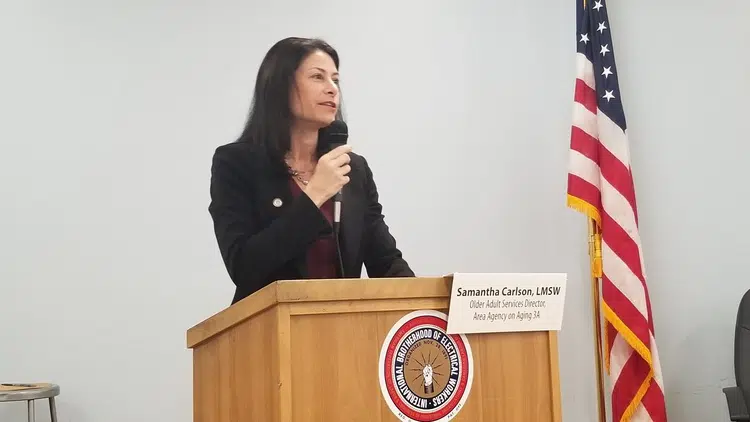LANSING, MI (WKZO AM/FM) – Monday, Michigan Attorney General Dana Nessel and Department of Licensing and Regulatory Affairs Director Orlene Hawks alerted professionals licensed by the State of Michigan to beware of an elaborate, sophisticated scam that ultimately cost one physical therapist and her family their entire savings.
The scheme – reported to Nessel’s consumer protection team – took place over the course of several days and involved three different men who posed as an investigator from LARA, a chief investigator from LARA, and an FBI agent, respectively.
The men convinced the physical therapist that her license to practice was in danger of “immediate temporary suspension,” and directed her to the nearest UPS store to receive notification in writing.
According to the woman, the document the men provided her appeared to be on official LARA letterhead, and even included her license number.
The man posing as the “chief investigator” told the physical therapist that he was investigating a drug trafficking case involving her license, and that her name and license were associated with 15 different bank accounts laundering 2.4 million dollars.
At one point, all three men got on the call with her, giving her the option of obtaining a lawyer and being stuck in jail without bail for at least six months, or cooperating with their “investigation” by signing a federal bond agreement with the Department of Justice.
Convinced that the scam was legitimate, the woman followed their instructions, telling no one – including her husband – and made a wire transfer for her so-called bond. She was then provided with an “application” to allegedly reinstate her license.
Once her husband discovered the wire transfer, the police were called and confirmed the scam. The couple was unable to recoup any of their financial losses.
“This kind of scheme shows the depth and breadth bad actors will go to while robbing well-intentioned people who are fearful of the results should they not comply,” Nessel said. “Do NOT fall for anyone who calls and threatens you unless you provide them with some form of cash – in this case, a hefty wire transfer. Be alert, be skeptical, and hang up, no matter how often they reach out to you. And by all means, immediately stop any payments and alert local law enforcement to report them. You may also wish to report this conduct to our office as it helps us understand what scams are circulating so that we can warn the public about them.”
LARA Director Hawks issued a statement, as well.
“No one from our office in LARA will ever reach out to you and threaten to suspend your license,” Hawks said. “Our investigators have teamed up with Michigan State Police to put a stop to as many scams as possible – but we need our licensees to be alert to the possibility that the next text, email, or phone call they get about their license may be someone trying to scam them.”
Last fall, several State of Michigan licensees encountered spam emails or spam websites impersonating LARA. Hawks emphasized the following while urging licensees to take caution:
- Licensees should be cautious of unsolicited requests for any of their personal information. LARA will not contact you directly asking for personal information.
- Be suspicious of any unexpected emails or links to websites. If your personal information is compromised, it may be used in other fraud schemes.
- Do not respond to – or open hyperlinks in – emails or text messages about validating your personal data.
- If there are any hyperlinks, check the url before clicking. LARA websites will have “michigan.gov” in the url.
- If you suspect fraud, report it immediately to your licensing bureau.
“Don’t be fooled by a scam, no matter how real it seems,” Nessel added. “Do your homework and report anything that is even remotely suspicious to the proper authorities. It is much easier to protect yourself from a scam than to recover from one.”







